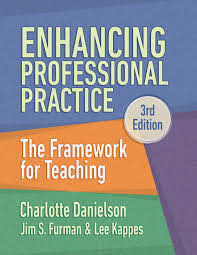Relief: Finding Comfort in Turbulent Times
Life is a journey filled with ups and downs, triumphs and challenges. In the face of adversity, we seek solace and comfort, yearning for relief from the burdens that weigh us down. Relief comes in many forms, offering respite from the storms that rage within and around us.
In times of physical pain or discomfort, relief can be found through medical interventions or natural remedies. Whether it’s a soothing massage to ease tense muscles or medication to alleviate a pounding headache, these interventions provide temporary relief from physical ailments. They offer us a chance to heal, rejuvenate, and regain our strength.
Emotional relief is equally important in navigating the rollercoaster of life. When we find ourselves overwhelmed by stress, anxiety, or sadness, seeking support from friends, family, or mental health professionals can provide immense relief. Sharing our burdens with others who genuinely care helps lighten the load we carry and reminds us that we are not alone on our journey.
Sometimes relief comes in the form of stepping away from our daily routines and immersing ourselves in activities that bring us joy. Whether it’s indulging in a favorite hobby or exploring new experiences, these moments of respite allow us to recharge and reconnect with ourselves. Engaging in activities that bring us pleasure can provide a much-needed escape from the pressures of everyday life.
But relief isn’t solely found externally; it also resides within us. Cultivating mindfulness practices such as meditation or deep breathing exercises can help calm our racing minds and bring a sense of inner peace. These techniques allow us to tap into our own inner resources and find solace amidst chaos.
In times of crisis or disaster, relief often comes through acts of kindness and compassion. Communities coming together to support one another demonstrate the power of unity in times of hardship. From providing shelter to those displaced by natural disasters to offering emotional support to those affected by tragedy, acts of kindness bring relief and restore faith in humanity.
Relief is not a one-size-fits-all concept. What brings relief to one person may not have the same effect on another. It’s important to recognize and honor our individual needs and preferences when seeking relief. Whether it’s through seeking professional help, engaging in self-care practices, or reaching out to loved ones, finding what works for us is crucial in our pursuit of relief.
In the midst of life’s challenges, relief serves as a beacon of hope. It reminds us that even in the darkest moments, there is always the possibility of finding comfort and solace. Relief empowers us to persevere, knowing that better days lie ahead.
So let us embrace the notion of relief and actively seek it out when needed. Let us be open to receiving support from others and be willing to extend a helping hand when we can. Together, we can create a world where relief is not just a fleeting moment but a constant presence in our lives.
6 Tips for Finding Relief: Managing Stress and Promoting Well-being
- Take breaks throughout the day to reduce stress and tension.
- Exercise regularly to help relieve stress and improve overall health.
- Get plenty of sleep each night to keep your body and mind rested.
- Eat a healthy diet and stay hydrated with water throughout the day.
- Spend time with family or friends for emotional support, relaxation, and enjoyment.
- Practice mindfulness activities such as yoga, meditation, or deep breathing exercises to help clear your mind and relax your body
Take breaks throughout the day to reduce stress and tension.
Finding Relief: The Power of Taking Breaks
In our fast-paced and demanding world, stress and tension have become all too familiar companions. However, amidst the chaos, there is a simple yet powerful tip that can provide much-needed relief: taking breaks throughout the day.
Our bodies and minds are not designed to operate at full throttle without pause. Constantly pushing ourselves without breaks can lead to burnout, decreased productivity, and heightened stress levels. Taking regular breaks allows us to recharge, refocus, and regain a sense of balance.
When we take breaks, we give ourselves permission to step away from our tasks temporarily. It’s an opportunity to shift our attention, relax our minds, and rejuvenate our bodies. Whether it’s a short walk outside, a few moments of deep breathing exercises, or simply closing our eyes for a few minutes, these breaks offer us a chance to reset.
Taking breaks has been proven to have numerous benefits for both our physical and mental well-being. It helps reduce muscle tension and eye strain that can result from prolonged periods of sitting or staring at screens. By incorporating movement into our breaks, such as stretching or gentle exercises, we can alleviate stiffness and improve blood circulation.
On the mental front, taking breaks allows us to clear our minds from the clutter of constant thoughts and worries. Stepping away from work-related tasks provides an opportunity for new perspectives and fresh ideas to emerge. It also helps prevent cognitive overload by giving our brains time to rest and process information more effectively.
Moreover, taking regular breaks throughout the day can enhance productivity. Studies have shown that brief intervals of rest actually improve focus and concentration when we return to work. By allowing ourselves short respites in between tasks or projects, we can maintain higher levels of energy and engagement throughout the day.
So how can we incorporate this tip into our daily lives? Start by scheduling short breaks into your routine. Set reminders on your phone or computer to prompt you to take a few minutes for yourself. Use these breaks to engage in activities that help you relax and unwind, such as listening to music, reading a book, or enjoying a cup of tea.
Remember, breaks don’t have to be lengthy or extravagant. Even a few minutes of intentional relaxation can make a significant difference. The key is to prioritize self-care and give yourself permission to step away from the demands of daily life.
Taking breaks throughout the day is not a luxury; it’s an essential practice for our overall well-being. So, let’s embrace this simple yet effective tip and give ourselves the gift of relief. By doing so, we can reduce stress, increase productivity, and cultivate a healthier and more balanced lifestyle.
Exercise regularly to help relieve stress and improve overall health.
Exercise: Your Key to Stress Relief and Improved Health
In today’s fast-paced world, stress has become an unwelcome companion in our lives. From work pressures to personal responsibilities, it can feel overwhelming at times. But fear not, for relief may be closer than you think. Regular exercise has proven to be a powerful tool in combating stress and promoting overall well-being.
Engaging in physical activity releases endorphins, often referred to as the “feel-good” hormones. These natural chemicals help boost mood and reduce stress levels. Whether it’s a brisk walk, a yoga session, or a high-intensity workout, any form of exercise can have a positive impact on your mental state.
Exercise also provides an opportunity for distraction from daily worries. When you immerse yourself in a workout routine or team sport, your mind focuses on the present moment rather than dwelling on stressors. This break from constant rumination allows you to gain perspective and recharge both mentally and emotionally.
Moreover, regular exercise has numerous long-term benefits for your overall health. Physical activity helps strengthen your cardiovascular system, improves blood circulation, and enhances lung capacity. It also aids in weight management and boosts immune function – all of which contribute to better overall well-being.
When you make exercise a part of your routine, you’re not only taking care of your physical health but also nurturing your mental resilience. Regular workouts can increase self-confidence and improve self-image, leading to a more positive outlook on life.
Finding the right exercise routine is essential for sustained motivation. Choose activities that you genuinely enjoy – whether it’s dancing, swimming, cycling, or practicing martial arts. The key is to make it fun and engaging so that it becomes something you look forward to rather than a chore.
Remember that starting small is perfectly fine; even short bursts of physical activity can yield benefits. Gradually increase the duration and intensity as your fitness level improves. It’s important to listen to your body and find a balance that works for you.
If you’re struggling with stress, anxiety, or any mental health concerns, consider consulting with a healthcare professional or a certified fitness instructor. They can guide you in developing an exercise plan tailored to your specific needs and abilities.
So, lace up your sneakers, put on your workout gear, and embark on a journey towards stress relief and improved health. Make exercise a priority in your life and witness the transformative power it holds. Your body and mind will thank you as you experience the positive effects of regular physical activity – from reduced stress levels to increased energy and overall well-being.
Get plenty of sleep each night to keep your body and mind rested.
The Importance of Sleep: Finding Relief for Body and Mind
In our fast-paced and demanding world, it’s easy to overlook the significance of a good night’s sleep. However, getting plenty of rest is essential for our overall well-being and serves as a powerful tool in finding relief for both our body and mind.
Sleep is not merely a period of inactivity; it is a vital process that allows our bodies to repair and rejuvenate. When we sleep, our cells regenerate, muscles relax, and the immune system strengthens. This physical restoration helps us wake up feeling refreshed and ready to take on the day.
But the benefits of sleep extend far beyond physical restoration. A well-rested mind is sharper, more focused, and better equipped to handle the challenges that come our way. During sleep, our brains consolidate memories, process emotions, and recharge cognitive functions. This mental rejuvenation enhances our ability to think clearly, make sound decisions, and maintain emotional balance.
Lack of sleep can have detrimental effects on both our body and mind. When we consistently deprive ourselves of sufficient rest, we may experience a range of negative consequences. Physical ailments such as weakened immune function, increased risk of chronic diseases like diabetes or heart disease, and impaired motor skills are just a few examples. Mentally, lack of sleep can lead to decreased concentration, memory problems, mood swings, heightened stress levels, and even mental health issues like anxiety or depression.
To find relief through ample sleep each night, it’s important to prioritize healthy sleep habits. Establishing a consistent bedtime routine can signal your body that it’s time to wind down and prepare for restful slumber. Create an environment conducive to sleep by ensuring your bedroom is cool, quiet, darkened if necessary, and comfortable.
Limit exposure to electronic devices before bed as the blue light emitted from screens can interfere with your natural sleep-wake cycle. Instead, engage in relaxing activities such as reading a book, practicing gentle stretching or meditation, or taking a warm bath to help calm your mind and promote sleepiness.
Additionally, be mindful of your caffeine intake, especially in the afternoon and evening. Caffeine is a stimulant that can disrupt sleep patterns and make it harder to fall asleep or stay asleep throughout the night. Opt for herbal teas or decaffeinated options instead.
Remember, getting plenty of sleep is not a luxury but a necessity for our overall well-being. By prioritizing restful nights, we can find relief from physical fatigue, mental exhaustion, and the daily stresses that weigh us down. So tonight, turn off the distractions, create a peaceful sleep environment, and give yourself the gift of rejuvenating rest. Your body and mind will thank you for it.
Eat a healthy diet and stay hydrated with water throughout the day.
The Power of Nourishment: Eating Well and Staying Hydrated for Relief
In our fast-paced lives, it’s easy to overlook the impact that our diet and hydration have on our overall well-being. Yet, when it comes to finding relief from the stresses and strains of daily life, eating a healthy diet and staying hydrated with water can make a world of difference.
A nutritious diet plays a vital role in maintaining physical and mental health. When we fuel our bodies with wholesome foods rich in vitamins, minerals, and antioxidants, we provide them with the necessary building blocks for optimal functioning. A balanced diet consisting of fruits, vegetables, whole grains, lean proteins, and healthy fats can boost our energy levels, enhance our mood, and support our immune system.
When we prioritize nourishing foods instead of relying on processed or sugary snacks, we fuel our bodies in a way that promotes sustained energy throughout the day. This steady energy flow helps us better cope with stressors and reduces the likelihood of experiencing energy crashes or mood swings.
Additionally, eating well can have a positive impact on our mental well-being. Research suggests that certain nutrients found in foods like fatty fish (rich in omega-3 fatty acids), leafy greens (abundant in folate), and nuts (packed with magnesium) may contribute to improved brain function and mood regulation. By incorporating these nutrient-dense foods into our diets, we support cognitive function while reducing the risk of mental health issues such as depression or anxiety.
While food provides essential nourishment for relief from within, staying hydrated is equally important for maintaining overall wellness. Our bodies rely on water for proper functioning across various systems. It helps regulate body temperature, aids digestion and nutrient absorption, lubricates joints, flushes out toxins through urine and sweat, and supports healthy skin.
Dehydration can lead to fatigue, headaches, difficulty concentrating, irritability, and even physical discomfort. By making a conscious effort to drink an adequate amount of water throughout the day, we can prevent these symptoms and promote optimal bodily functions. A general guideline is to aim for at least eight glasses (64 ounces) of water daily, adjusting based on individual needs and activity levels.
Incorporating healthy eating habits and staying hydrated may seem like simple tips, but their impact on our well-being should not be underestimated. By fueling our bodies with nutritious foods and ensuring proper hydration, we provide ourselves with a solid foundation for relief from the challenges that life throws our way.
So let us prioritize a healthy diet filled with nourishing foods and make drinking water a regular part of our daily routine. By doing so, we empower ourselves to face each day with renewed energy, mental clarity, and the resilience needed to find relief in even the most demanding of times.
Spend time with family or friends for emotional support, relaxation, and enjoyment.
The Importance of Spending Time with Loved Ones for Emotional Support and Relaxation
In the hustle and bustle of our daily lives, it’s easy to get caught up in the demands of work, responsibilities, and obligations. Amidst the chaos, we often overlook one of the most valuable sources of relief: spending quality time with family and friends.
Family and friends are not just people we share a bond with; they are our support system, our pillars of strength. When life gets tough, they offer a safe haven where we can find solace, understanding, and emotional support. Their presence alone can provide a sense of relief from the burdens we carry.
Being surrounded by loved ones creates an environment that promotes relaxation and rejuvenation. Whether it’s sitting around a dinner table sharing laughter and stories or going for a leisurely walk in the park together, these moments allow us to unwind from the stresses of daily life. The warmth and comfort that come from being in their company can melt away tension and bring a profound sense of relief.
Spending time with family or friends also offers us an opportunity to engage in activities that bring us joy and fulfillment. It could be as simple as playing board games, watching movies together, or embarking on adventures in nature. These shared experiences create lasting memories while providing an escape from the pressures of our busy lives.
Moreover, surrounding ourselves with loved ones allows us to tap into a sense of belonging and connectedness. It reminds us that we are not alone in our struggles or triumphs. Sharing our joys and sorrows with those who truly care strengthens our emotional well-being and provides much-needed relief from feelings of isolation.
In today’s fast-paced world where technology often dominates our interactions, it’s crucial to prioritize face-to-face connections with family and friends. While virtual communication has its benefits, nothing compares to the power of physical presence when it comes to finding emotional support and relaxation.
So make it a point to carve out time in your busy schedule to spend with loved ones. Prioritize these moments as essential for your well-being. Whether it’s a weekly family dinner, a weekend outing with friends, or a heartfelt conversation over a cup of coffee, these small acts can bring immense relief and nourish your soul.
Remember, the bonds we share with our loved ones are precious. They provide us with the comfort, understanding, and support we need during challenging times. So cherish these relationships and embrace the relief that comes from spending quality time with family and friends.
Practice mindfulness activities such as yoga, meditation, or deep breathing exercises to help clear your mind and relax your body
Finding Relief Through Mindfulness: The Power of Yoga, Meditation, and Deep Breathing
In today’s fast-paced world, finding moments of calm and relief can be a challenge. However, incorporating mindfulness activities into our daily routines can offer a respite from the chaos and help us find inner peace. Practices such as yoga, meditation, and deep breathing exercises have been proven to clear the mind and relax the body, providing much-needed relief.
Yoga is not just a physical exercise; it is a holistic practice that combines movement, breath control, and meditation. Through various poses and stretches, yoga helps release tension in the body while promoting flexibility and strength. As we flow through each movement with intention and focus on our breath, we cultivate mindfulness. This allows us to let go of worries and distractions, bringing our attention to the present moment. The combination of physical movement and mental awareness creates a harmonious balance that brings relief to both body and mind.
Meditation is another powerful tool for finding relief through mindfulness. By sitting in stillness or engaging in guided meditation practices, we create space for self-reflection and inner peace. Through meditation, we learn to observe our thoughts without judgment or attachment. This practice helps quiet the mind’s chatter and allows us to tap into a deeper sense of calmness within ourselves. Regular meditation sessions can reduce stress levels, improve focus and concentration, enhance emotional well-being, and provide profound relief from the pressures of daily life.
Deep breathing exercises are simple yet effective techniques that can be practiced anywhere at any time. Taking slow, deep breaths activates the body’s relaxation response by stimulating the parasympathetic nervous system. This response counters the fight-or-flight mode often triggered by stress or anxiety. By consciously focusing on our breath—inhaling deeply through the nose and exhaling slowly through the mouth—we bring ourselves into the present moment while promoting relaxation throughout our entire being. These exercises can be particularly helpful during moments of high stress or when we need a quick break from the demands of our day.
Incorporating mindfulness activities into our lives is not about achieving perfection or instant relief. It’s a journey that requires patience, consistency, and self-compassion. By dedicating even a few minutes each day to practices such as yoga, meditation, or deep breathing exercises, we create space for relief and cultivate a sense of well-being.
So, whether it’s unrolling your yoga mat, finding a quiet spot to meditate, or simply taking a few conscious breaths throughout the day, make a commitment to prioritize your mental and physical health. Embrace the power of mindfulness and experience the profound relief it can bring to your life.




